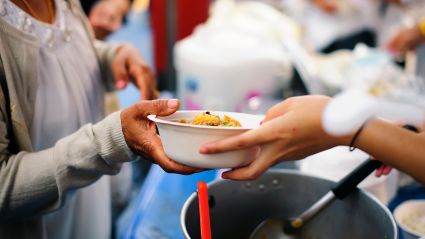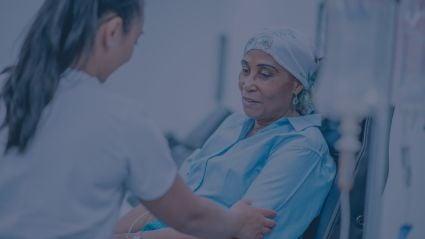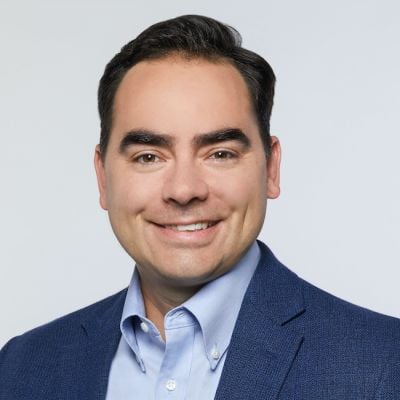
Food and nutrition insecurity is a health issue far too big to ignore. Diet-related diseases are the leading cause of death in the US for adults. When people and communities lack access to affordable, healthy food, we see the impact in our medical offices and hospitals. Food insecurity in US households grew to 13.5 percent in 2023, up from 10 percent in 2021. While the connection between food and health is evident, how can health care make a more meaningful difference in preventing diet-related diseases?
We need partnerships—because food insecurity and diet-related diseases can’t be solved through health care alone. As we develop new ways to help people access foods that keep them healthy, we have to work across sectors and with partners to ensure solutions are sustainable and culturally responsive. How we collaborate—and with whom—is essential. If I reflect on the collaborative journey Kaiser Permanente has been on in the Food is Medicine space, a few key lessons are top of mind.
-
Listen and learn from the people you serve: Our members are at the center of everything we do. Meeting their needs is what guides our strategies. But how can we best assess those needs? It starts with listening.
Kaiser Permanente’s first steps towards joining the Food is Medicine movement began in 2018, when we crowdsourced ideas on how we could better help our members and communities get their basic human needs met. Out of more than 2,000 ideas, combatting food insecurity rose to the top. The voices and lived experiences of our members were at the heart of our program designs—and those programs have formed the bedrock of our work, which culminated in the launch of the Kaiser Permanente Food is Medicine Center of Excellence earlier this year.
-
Leverage expertise to test ideas: We codesigned programs with our members and communities. But we didn’t know if or how those programs would impact health.
We had to expand our partnerships to engage with local nonprofits, government agencies, foundations, academia, and businesses that could help us develop the clinical trials and collaborative research we needed to build the evidence for healthy food programs in health care. We teamed up with Instacart to study how deliveries of healthy food can improve health. We’re studying the results of providing stipends for people with diet-related diseases to purchase healthy food. We’ve launched produce prescriptions with Foodsmart, Instacart, and Tufts University and medically tailored meals programs with the Food is Medicine Coalition, Meals on Wheels, and Mom’s Meals, while measuring the effectiveness, outcomes, and costs of these interventions. And our partnerships with the American Heart Association, the Rockefeller Foundation, Aspen Institute, and Tufts have helped us promote the adoption of food-based interventions in health care.
-
Reach people at the right time to offer assistance: Once we had programs designed and tested, we needed to make sure people who could benefit would access them. That’s where our partners in deployment became crucial.
We partner with Unite Us to proactively screen our members for food insecurity and connect those in need with resources in their local communities. We identify members who are eligible for government benefits like the Supplemental Nutrition Assistance Program or Special Supplemental Nutrition Program for Women, Infants, and Children to offer program application assistance with our partners, including Code for America. That effort has helped 137,000 Kaiser Permanente members apply for federal grocery benefits. And through our relationship with Share Our Strength, we are helping reduce child hunger by supporting enrollment in Summer Electronic Benefit Transfer, the first new federal food program in nearly 50 years.
In letting these lessons guide us, we’ve been able to work closely with our cross-sector counterparts and make meaningful contributions to collective efforts. Following the White House Conference on Hunger, Nutrition, and Health in 2022, we committed $50 million to lead the health-care field in meeting the Challenge to End Hunger and Build Healthy Communities. Our contributions support our efforts to advance the Food is Medicine movement, strengthen food and nutrition security programs, and build evidence for the ways food can treat and prevent certain health conditions. By aligning interests and building on each other’s strengths, we have put the Food is Medicine movement on the map and more seamlessly connected food, health, and health care.





















